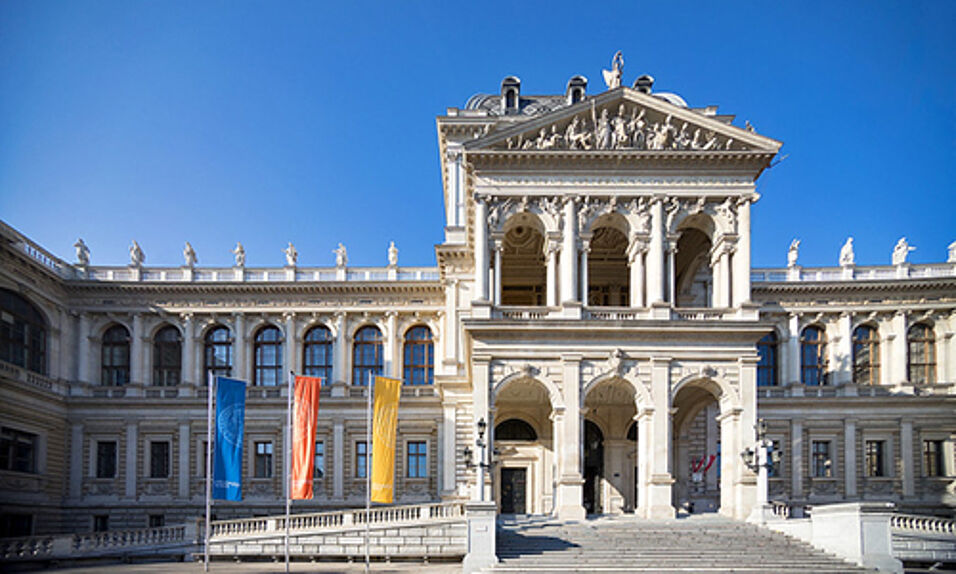Observatory for Political Texts in European Democracies: A European Research Infrastructure (OPTED) is a new research project coordinated and led by Hajo Boomgaarden. Funded by the European Union's Horizon 2020 Programme for Research and Innovation, OPTED is scheduled to start October 1, 2020 and will run for three years.
OPTED is a design study with 17 involved research institutions. The design study lays the foundation for an infrastructure that will serve a major hub for political text analysis in Europe. Among the objectives of the infrastructure are scientific community building, the extension of text analysis tools, and learning materials for social scientists, the broader public and journalists. Hajo Boomgaarden, Annie Waldherr and Fabienne Lind (University of Vienna) will lead the work package "Journalistic, mass mediated political texts", which will provide an extensive overview about main sources, publicly available data collections, and methods specifically designed to obtain and work with journalistic, mass mediated political texts.
More information on OPTED, its project partners and an extended abstract can be found on the website of the Computational Communication Science Lab (CCL).
PI: Hajo Boomgaarden
Duration: 2020-2023
Collaboration: Fabienne Lind • Annie Waldherr
Web: Computational Communication Science Lab (CCL)
Starting September 1, 2020, the Austrian Science Fund (FWF) will fund the project Social Media Use and Adolescents' Well-Being for a three-year period (2020-2023). The project will be led by Jörg Matthes as principal investigator, Desirée Schmuck (KU Leuven) as co-principal investigator, and (scientifically) supported by Kevin Koban and Anja Stevic.
Content: Social media sites such as WhatsApp, Facebook, and Instagram have become an integral part of adolescents' lives due to the high availability of mobile devices such as smartphones and tablets. In this context, adolescents increasingly use social media in parallel with other activities, e.g., while talking to friends or family, or even during school classes. These activities lead to the phenomenon of being permanently online and constantly connected to others. The ongoing and diverse social media use entails a number of positive aspects such as reinforcing friendships or self-disclosure, but also poses many risks, such as communication stress or becoming a target of cyberbullying. Given the multiple uses of social media, a one-sided focus on positive or negative consequences for adolescents' well-being falls short, as they may occur simultaneously.
Therefore, the central hypothesis of this project states that social media use has both positive and negative influences on adolescents' psychological, social, and physical well-being. To test this assumption we developed an innovative theoretical model. For the first time, we integrate positive and negative consequences of social media use in three key areas of adolescents' lives — information management, relationship management, and identity management — and simultaneously examine their influence on adolescents' well-being. We will investigate six underlying processes as well as different influence factors such as individual predispositions, parental, and peer influences. This approach is a unique attempt to shed new light on how and under which circumstances social media use influences well-being in adolescence.
More detailed information on Social Media Use and Adolescents' Well-Being can be accessed here.
PI: Jörg Matthes
Co-PI: Desirée Schmuck (KU Leuven)
Duration: 2020-2023
Mitarbeit: Kevin Koban • Anja Stevic
Web: Advertising & Media Effects Research Group

